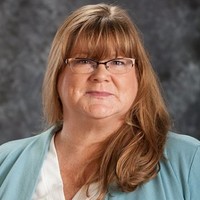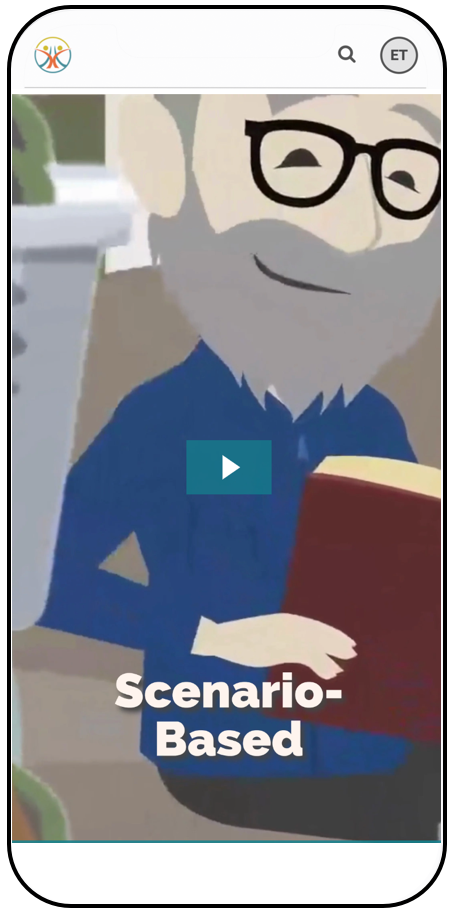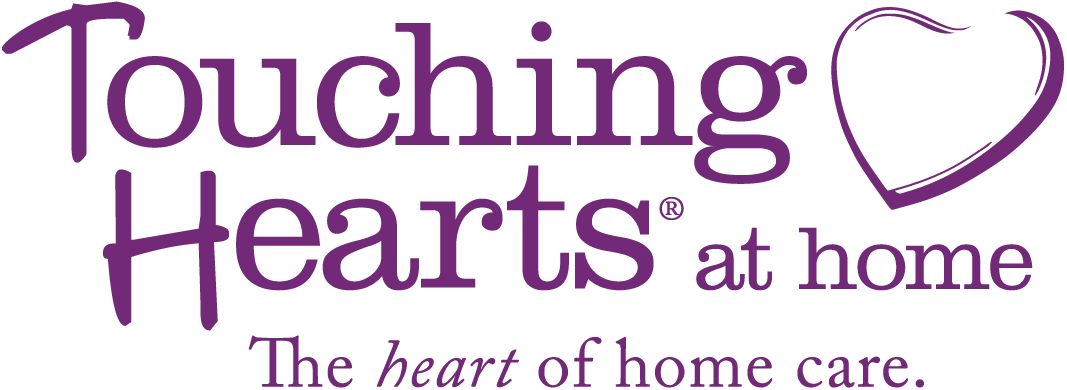Home health and home care agencies face a number of challenges, from recruiting and retention to training and compliance. To better understand the specific challenges, and potential solutions, we reached out to ten home health and home care agency executives and asked them to share their biggest challenges, and how they overcame them.
Read on to learn how today’s home health and home care agencies are successfully solving the most common problems.
10 Execs Share Their Top Agency Challenges
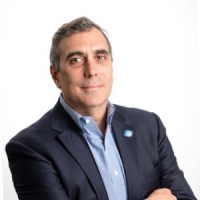
As owner of Senior Helpers Boston and South Shore, one of the biggest challenges I faced (and continue to face) is how to explain to potential clients that price is not a valid comparison point. In an unlicensed state, there are many other factors they should be considering when comparing agencies: Certification of staff – are they CNAs or HHAs? Is there a clinical case manager defining and orchestrating care – Nurse or Social Worker? Are the caregivers employees or contractors? Is the agency properly insured? How frequently are cases reviewed and care plans updated? What is the background check process – in state or multi state? For me, to answer the right way to approach these things is to consider what I would want for my own parents. I keep them in mind as I navigate setting standards for my agency which encompasses everything from hiring only experienced CNAs and
HHAs and qualified mission driven office staff, to additional training and
dementia training, to an ongoing commitment to professional education and educating our families, to keeping our clients and staff safe during a pandemic, and building relationships with our referral partners. They are my standard, my inspiration, and my north star. If it's not good enough for my parents, it's not good enough for anyone else's.
Our biggest challenge, by far, has been maintaining caregiver engagement in what is challenging work done in a sometimes isolating environment. Providing care in the homes of our clients means there is little (no?) opportunity for collegial encouragement and professional camaraderie. My firm has invested heavily in a "talent management" function that deploys a variety of employee engagement tactics. I measure its success by our retention rates (they are significantly higher than the industry's average). Further, we have built a "care management" function, staffed exclusively by nurses. Included in their role is the professional mentorship & development of the caregivers in the homes of our clients and at our corporate campus.
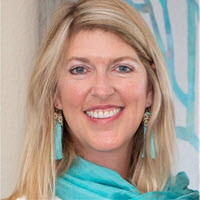
AmeriCare Plus, LLC has always been fortunate to have a great team of caregivers across the Commonwealth of Virginia who are all family....the Team Teal Family. Training has always been a hallmark for AmeriCare Plus. Prior to December 2018, training had always been relatively easy for our company as our caregivers came into our offices weekly to turn in aide records & pick up supplies and then we transitioned to
Electronic Visit Verification (EVV). Once we made the transition we started to see participation in specialized training fall off as our team no longer had to come into our office weekly. Then, Covid-19 hit us all! Our managers were really struggling to offer our team all of the regularly required training much less any specialized training as they were only focused on providing Covid-19 protocols. Fortunately, our Corporate Trainer, Rachel Byers helped us find and begin working with CareAcademy! Rachel has been able to help our team of caregivers utilize all of the terrific training available to them through CareAcademy on-line. The ease of use and wide range of training available has helped AmeriCare Plus keep our team engaged and allowed many of our caregivers to focus on an area specialization such as dementia or hospice which also helps with retention, a huge added bonus!
Attacting the right type of caregivers, emphasizing that this is a true health care career path, with initial and ongoing paid training and support provided.
Our biggest challenge during Covid-19 was streamlining the employment process, so we can onboard new hires more efficiently, while keeping everyone safe and sound within the comforts of their home. CareAcademy assisted our agency with pivoting into a more streamlined, sophisticated, savvy practice. Their courses meet the state requirements, are visual and their staff is knowledgeable and very friendly to work with. Training is our number one practice and the courses can be sent to provide and assist our caregivers with information needed to immediately rectify challenges they may face within the consumer's home. For example, dealing with consumers with dementia, CareAcademy offers several intuitive classes which ease the caregivers anxiety when caring for a consumers with dementia. Overall, we are very satisfied with partnering with CareAcademy.
While our industry will likely always struggle with staffing issues, we need to continually improve our understanding of the underlying causes. One point that we have identified and are working to improve is how to navigate the cultural divide between caregivers and clients. Caregivers frequently provide care for people of different ages, socio-economic backgrounds, and ethnicities, but often without having the tools to navigate the challenges that can arise from this dynamic. For our agency, the first step has been to start talking about it openly amongst the entire team. From these discussions, we are now investing in training that will prepare our caregivers for these difficult situations. Beyond that, as an industry, we need to do a better job of celebrating the caregivers and what we are asking them to do, and in so doing, we will elevate the status of their meaningful work.

The biggest challenges we have faced as an agency during the ongoing pandemic would be the ability to continue hiring experienced, quality, loyal caregivers. This has given us the opportunity to focus on our retention strategies and how we can improve in these specific areas. We have implemented various methods including a caregiver of the month initiative, taken our time to learn more about our caregivers on a personal level, and work to match them with clients who would be a great fit for them and their personality, along with ensuring we provide opportunities for growth in order to foster their success as a caregiver and their overall career. Additionally, we offer monthly contests for engagement and provide career strategy support. As the pandemic continues, we have to stop and look at our methods and remember to be flexible and open to changes in order to create a team of care professionals that thrive in the midst of difficult times. Now more than ever, we are grateful for all health care workers and all their hard work in this difficult time. Together we can do it, we believe in you!
Retention of employees. Caregivers are hard to find and stay on the job less than 90 days. We interview daily to get employees. We use Indeed.
The biggest challenge our agency faces will have been employee retention and maintaining adequate back-up employees for client call-offs. Its difficult selling the employee the idea that his job will consist upon if employees call off in the future, and if you're using current employees on your roster that are looking for extra hours alot of the times. The call-off shift might not coincide with an open time slot for an active employee to service. Employee retention is this agency's biggest challenge.
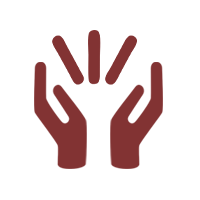
While being the owner of a small company, a short time ago I wore most, if not all managerial hats. Not only did I manage all it entails to be a CEO, I also oversaw every aspect of human resources, I managed accounts receivable and accounts payable, and lastly, quality control and payroll. Allocating enough time to each specific area was an enormous challenge. Working 7 days a week was the norm. It became clear that I needed to devise a time management system to ensure the effects of this problem did not take away from the care given to what is most important to me and this profession, the patients. It became apparent I needed to invest in my company. I needed to act fast. First, I decided to hire an office person to oversee important but not urgent matters. Matters that only needed my approval once completed. At the same time, I decided to acquire the wonderful services of HHAeXchange’s EEV Solution, a
homecare management software system. The help of this incredible software made my company more efficient and freed up a ton time; time I directed towards giving my patients better care. These two investments, coupled with some other minor changes I made in the hiring of personnel, not only made my business more productive, it also freed up some quality time I get to spend with my wonderful grandchildren.
7 Challenges in Home Health and Home Care Agencies
Most of the greatest challenges in home health and home care involve people — caregivers, clients, and administrators. Let’s take a look at seven common problems and some strategies for resolving them.
Employee retention
Caregiver turnover in home health and home care is around 60%, with some agencies exceeding 100%. As a result, agencies are often short-staffed, which puts additional strain on caregivers, negatively impacts morale, and limits the ability to take on more clients.
One of the home care experts we talked to said her agency is focusing on boosting employee morale, in order to improve retention:
“We have implemented various methods including a caregiver of the month initiative, taken our time to learn more about our caregivers on a personal level, and work to match them with clients who would be a great fit for them and their personality …”
- Caroline Glassell, Director of Care Management, Marin Home Care
Caregiver engagement
Another one of the most common challenges in home health and home care is caregiver engagement. In other assistive care settings — like long-term care facilities and rehab centers — caregivers benefit from interacting with their peers. But home health and home care employees work independently, which can be an isolating experience.
Improving engagement can help caregivers feel more invested in their work. One of the experts we interviewed said his agency has implemented a “care management” initiative, which is staffed by nurses.
“Included in their role is the professional mentorship & development of the caregivers in the homes of our clients and at our corporate campus.”
- Jeff Grossman, Founder & COO, Commonwise Home Care
Caregiver training
With pandemic-related restrictions that arose in 2020, and the need to keep both caregivers and clients safe, home care agencies struggled with onboarding and training. To ensure caregivers receive state-approved training, some agencies are turning toward third-party training providers with fully remote programs.
One home care administrator said that partnering with CareAcademy allowed her agency to provide essential training, especially for some of the most prevalent issues in home health and home care today.
“For example, dealing with consumers with dementia, CareAcademy offers several intuitive classes which ease the caregiver’s anxiety when caring for consumers with dementia. Overall, we are very satisfied with partnering with CareAcademy.”
- Enid Knightner, Administrator, Faithful Home Care Solutions
Price comparisons
Budget-conscious family members who are concerned about the cost of home health and home care may spend time “shopping around” for the most affordable solution. Agency administrators may then be challenged to explain that cost alone is not the best way to choose a home health care provider.
An owner of a home care agency in Boston told us that when considering the value of his agency’s services, he focuses on the qualities he would demand if searching for his own parents’ care: A thorough employee background check, certified caregivers, proper insurance, and other factors.
“For me, to answer the right way to approach these things is to consider what I would want for my own parents. I keep them in mind as I navigate setting standards for my agency … If it's not good enough for my parents, it's not good enough for anyone else's.”
- Mark Friedman, Owner, Senior Helpers Boston and South Shore
Agency operations
Home health and home care operators, whether franchisees or independent owners, often take on most if not all of the administrative tasks themselves. When their agency begins to grow, the workload can quickly become overwhelming, leaving little time for important tasks like caregiver onboarding.
One home care CEO described such an experience, saying she often worked seven days a week in order to keep up with administrative functions. She realized that without help, she wouldn’t be able to truly focus on clients. So she decided to hire an employee and invest in new software.
“It became apparent I needed to invest in my company. … First, I decided to hire an office person to oversee important but not urgent matters. Matters that only need my approval once completed. At the same time, I decided to acquire the wonderful services of HHAeXchange’s EVV Solution, a homecare management software system. The help of this incredible software made my company more efficient and freed up a ton of time …”
- Cheri Tindell, CEO, Tindell Care LLC
Client-caregiver culture
Clients and caregivers may have different backgrounds or cultures that might make interpersonal connections challenging. This is one of the issues in home care that might be underreported, as clients and caregivers may not recognize when a cultural disconnect is impacting their relationship.
A home care CEO told us that this is a problem his agency recognizes and has been working to resolve.
“Caregivers frequently provide care for people of different ages, socio-economic backgrounds, and ethnicities, but often without having the tools to navigate the challenges that can arise from this dynamic. For our agency, the first step has been to start talking about it openly amongst the entire team. From these discussions, we are now investing in training that will prepare our caregivers for these difficult situations.”
- Chip Measells, CEO, Stowell Associates
Documentation and compliance
A common theme among the experts we talked to was a need for appropriate compliance training. That includes continuing education for licensed caregivers.
CareAcademy provides the expert-level training that home health and home care agencies need to meet state requirements, inspire consumer confidence, and ensure their employees are offering the best standard of care. We offer training for caregivers and office personnel, as well as an educational video library our customers can access at their convenience.
With the analytics we provide, administrators can see who has completed training, generate training logs for audits, and make sure employees are keeping up with continuing education.
Final Thoughts
Operating a home health or home care agency can be equally challenging and rewarding. With the support of CareAcademy, you can focus on developing your presence in your community and working toward your long-term objectives — we’ll take care of the training.
Our caregiver training prepares your employees for the difficult and delicate situations they might encounter, and helps them enhance the skills and knowledge they already have. And because these trainings are fully remote, the cost-per-provider is much lower than in-person training.
If you’re looking for a better way to train, engage, and retain your employees, we’d love to work with you. Take a look at our course offerings — we’re ready to help you!



